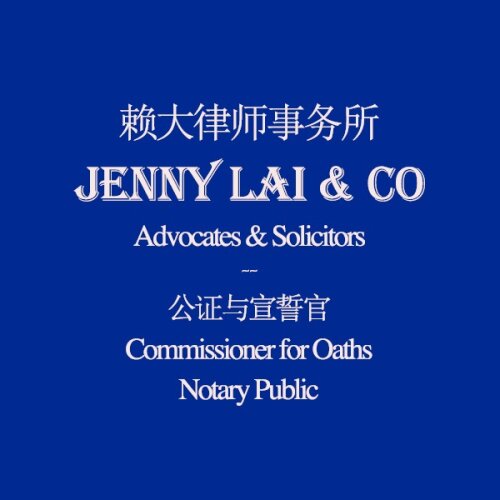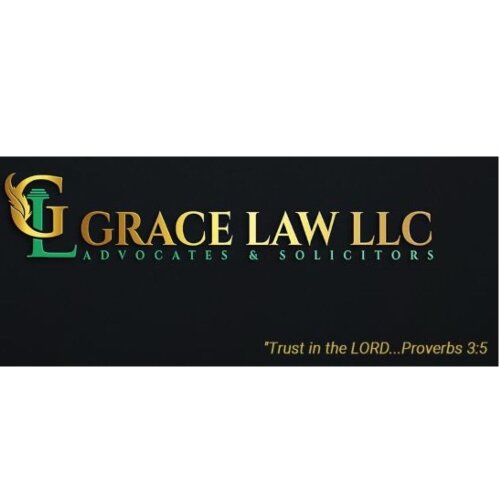Best Annulment Lawyers in Chinatown
Share your needs with us, get contacted by law firms.
Free. Takes 2 min.
Free Guide to Hiring a Family Lawyer
List of the best lawyers in Chinatown, Singapore
About Annulment Law in Chinatown, Singapore:
Annulment is a legal procedure that declares a marriage null and void, as if it had never taken place. In Chinatown, Singapore, annulment is governed by the Women's Charter. Annulment is different from divorce, as divorce dissolves a valid marriage, while annulment declares that the marriage was never legally valid.
Why You May Need a Lawyer:
Annulment can be a complex legal process, especially when there are disputes over the validity of the marriage. A lawyer can provide valuable advice, guide you through the legal proceedings, and represent your interests in court. They can also help you understand your rights and obligations under the law.
Local Laws Overview:
In Chinatown, Singapore, to be eligible for annulment, you must prove that your marriage is void or voidable under the Women's Charter. Grounds for annulment include non-consummation of the marriage, lack of consent, mental incapacity, or other legal impediments to the marriage.
Frequently Asked Questions:
1. How is annulment different from divorce?
Annulment declares that the marriage was never legally valid, while divorce dissolves a valid marriage.
2. What are the grounds for annulment in Chinatown, Singapore?
Grounds for annulment include non-consummation of the marriage, lack of consent, mental incapacity, or other legal impediments to the marriage.
3. Do I need to prove fault to obtain an annulment?
No, you do not need to prove fault to obtain an annulment in Chinatown, Singapore.
4. How long does the annulment process take?
The annulment process can vary in length depending on the complexity of the case and the court's schedule.
5. Will I have to appear in court for the annulment proceedings?
It is possible that you may need to appear in court for the annulment proceedings, especially if there are disputes over the validity of the marriage.
6. Can I annul a marriage that has lasted for many years?
Yes, you can still seek annulment for a marriage that has lasted for many years, as long as you meet the criteria for annulment under the law.
7. How can a lawyer help me with the annulment process?
A lawyer can provide legal advice, guide you through the process, represent your interests in court, and help you understand your rights and obligations under the law.
8. What are the potential consequences of an annulment?
Consequences of annulment may include the division of assets, spousal support, and child custody arrangements.
9. Can I appeal a court's decision on annulment?
Yes, you may have the right to appeal a court's decision on annulment if you believe there are legal grounds for doing so.
10. Are there alternatives to annulment in Chinatown, Singapore?
Other alternatives to annulment include divorce, separation, or mediation, depending on the circumstances of your case.
Additional Resources:
For more information on annulment in Chinatown, Singapore, you can contact the Family Justice Courts or seek advice from the Law Society of Singapore.
Next Steps:
If you are considering annulment and need legal assistance, it is advisable to consult with a qualified lawyer who specializes in family law. They can assess your case, explain the legal implications, and help you navigate the annulment process effectively.
Lawzana helps you find the best lawyers and law firms in Chinatown through a curated and pre-screened list of qualified legal professionals. Our platform offers rankings and detailed profiles of attorneys and law firms, allowing you to compare based on practice areas, including Annulment, experience, and client feedback.
Each profile includes a description of the firm's areas of practice, client reviews, team members and partners, year of establishment, spoken languages, office locations, contact information, social media presence, and any published articles or resources. Most firms on our platform speak English and are experienced in both local and international legal matters.
Get a quote from top-rated law firms in Chinatown, Singapore — quickly, securely, and without unnecessary hassle.
Disclaimer:
The information provided on this page is for general informational purposes only and does not constitute legal advice. While we strive to ensure the accuracy and relevance of the content, legal information may change over time, and interpretations of the law can vary. You should always consult with a qualified legal professional for advice specific to your situation.
We disclaim all liability for actions taken or not taken based on the content of this page. If you believe any information is incorrect or outdated, please contact us, and we will review and update it where appropriate.









